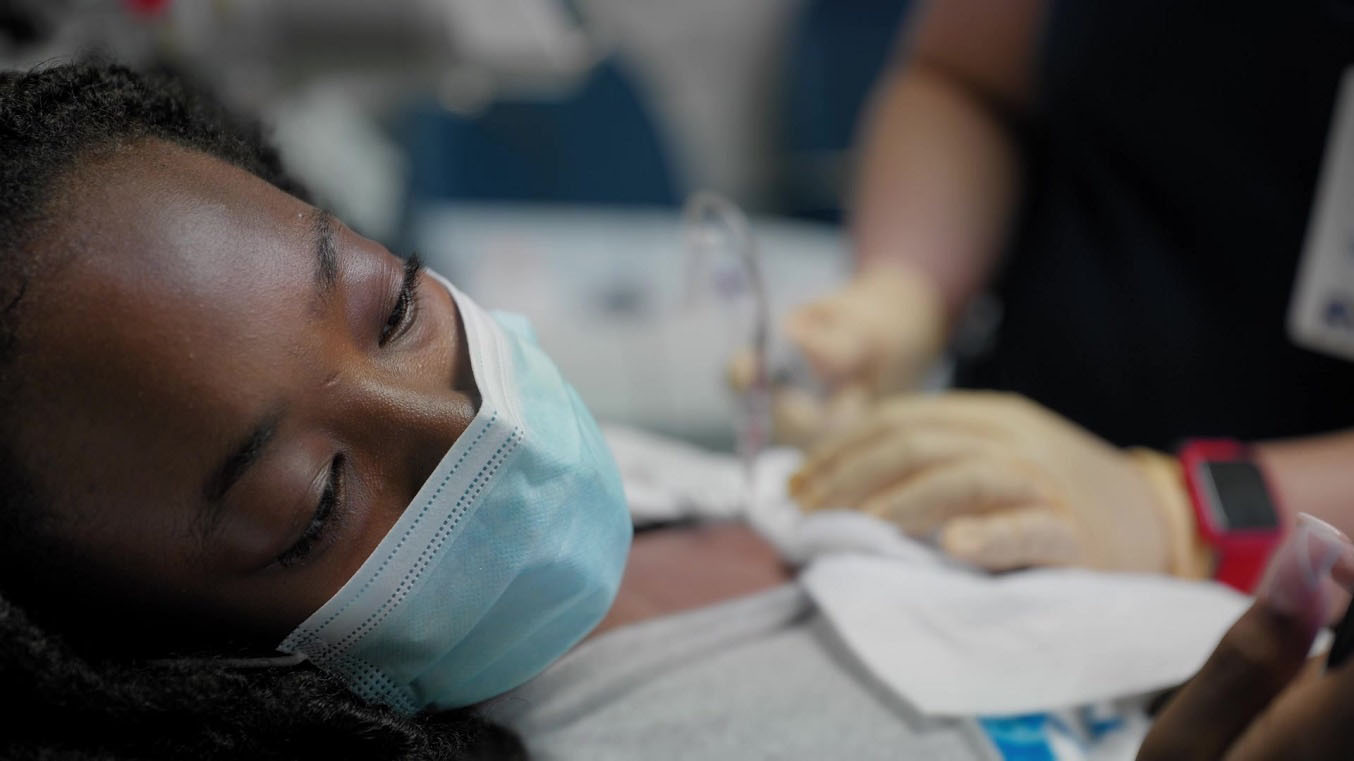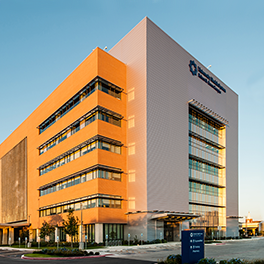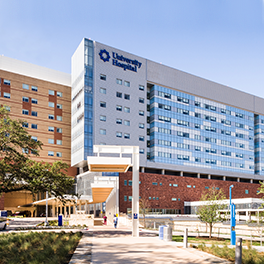Hematologists are physicians that treat diseases that originate in or affect the blood. This includes both cancerous and noncancerous blood diseases.
Our San Antonio hematologists treat all of the following blood disorders and conditions.
Blood Conditions We Treat
Anemia
Anemia is a blood disorder that happens when you have fewer red blood cells than normal. Red blood cells carry oxygen from your lungs to the rest of your body. Without enough oxygen, your body cannot function normally.
There are different types of anemia, which need different treatments. Some include iron deficiency anemia, sickle cell anemia and aplastic anemia.
Depending on which type of anemia you have, you may receive one of the following treatments:
- Blood transfusion
- Change in diet
- Treating any underlying cause
- Vitamin and mineral supplements
Your doctor can diagnose anemia using blood tests.
Bleeding & Clotting Disorders
University Health has some of the nation’s top hematologists right here in San Antonio. We can treat you for any of the following:
- Hemophilia is an inherited disorder that prevents blood from clotting properly. People with hemophilia may bruise and bleed easier than other people. To treat it your doctor may prescribe medicine or transfuse factor containing products to help clot your blood. Or they may recommend surgery with physical therapy in case of joint involvement.
- Immune thrombocytopenic purpura (ITP) is a blood disorder in which your immune system attacks its own blood platelets. Symptoms include bruising, tiny red dots under the skin and excessive bleeding in your mouth, nose, etc. It may be acute and go away after a period of months, or chronic, and last for years.
- Thrombosis is a disorder in which a blood clot blocks a vein or an artery. If left untreated, thrombosis could lead to a stroke, heart attack, or organ failure. Thrombosis may be caused by injury to the leg veins, a broken bone, obesity, immobility after surgery or an inherited gene. Your doctor may recommend blood thinners or stents to hold the vessel open or surgery.
Essential Thrombocythemia
Essential thrombocythemia occurs when your bone marrow produces too many platelets. Platelets are parts of the blood that help with clotting. Too many platelets could result in too much or too little clotting, which leads to excessive bleeding.
Doctors believe defects in the bone marrow’s platelet-making cells cause this disorder. Symptoms include:
- Bleeding
- Blood clots
- Burning of hands and feet associated with redness
- Dizziness
- Headache
- Weakness
Treatment options include low-dose aspirin, chemotherapy or removing platelets from your blood.
Hereditary Hemochromatosis
Hereditary hemochromatosis is a disorder that causes your blood to store too much iron in your tissues. Your body normally absorbs iron from food, but too much iron can damage your heart, liver and pancreas.
Symptoms include:
- Darkening of the skin
- Depression
- Diabetes mellitus
- Impotence in men
- Increased risk of liver cancer
- Joint pain
- Lethargy
- Loss of body hair
Treatment options:
- Chelation therapy, which uses medicine to reduce iron levels.
- Dietary modifications
- Phlebotomy, a procedure that removes blood from your body to lower iron levels.
- Reducing alcohol consumption
Hodgkin Disease & Non-Hodgkin Lymphoma
Hodgkin disease is blood cancer that often begins in the lymph nodes. It is also called Hodgkin lymphoma.
From the lymphatic system, Hodgkin disease can spread to other parts of the body. Treatment may include chemotherapy, radiation or clinical trial treatment. Hodgkin lymphoma is one of the most treatable cancers.
Non-Hodgkin lymphoma, like Hodgkin lymphoma, starts in the lymphatic system.There are two broad categories of NHL: indolent and aggressive. Indolent NHL grows slowly and often respond well to treatment. Aggressive NHL spreads quickly and may require chemotherapy, radiation or bone marrow transplant. Sometimes aggressive NHL can be cured.
Treatment for NHL may include:
- Bone marrow transplant
- Chemotherapy
- Clinical trials
- Radiation
- Surgery
- Targeted therapy
Multiple Myeloma
Multiple myeloma starts in the plasma cells of bone marrow, which are part of your immune system. Multiple myeloma can cause tumors in your bones, low blood counts and kidney problems.
Possible symptoms of multiple myeloma:
- Bleeding and bruising easily
- Bone pain
- Broken bones
- Fatigue
- Frequent infections from lack of white blood cells
- Numbness in your feet or legs
Your doctor will determine which treatment option for multiple myeloma is best for you. Treating this disease will not cure it, but it will keep it under control and slow the growth of cancer cells.
Treatment options may include:
- Chemotherapy
- Radiation therapy
- Stem cell transplant
- Supportive care (antibiotics, blood thinners)
Your doctor may recommend that you participate in a clinical trial if they believe you would benefit.
Polycythemia Vera
Polycythemia vera causes an increase in your red blood cells. This makes your blood thicker and can cause circulation problems. It is caused by a mutation in your bone marrow and causes symptoms such as:
- Blood clots
- Fatigue
- Gout
- Headaches
- Itching, especially after warm shower
- Night sweats
- Stomach pain
- Vision problems
To treat it, your doctor may remove blood from your body periodically (phlebotomy). Or your doctor may use chemotherapy to prevent your bone marrow from producing too many red blood cells.
This disorder can result in a heart attack, stroke or pulmonary embolism. There is no cure, but people with this disorder can live normal lives with proper treatment.




